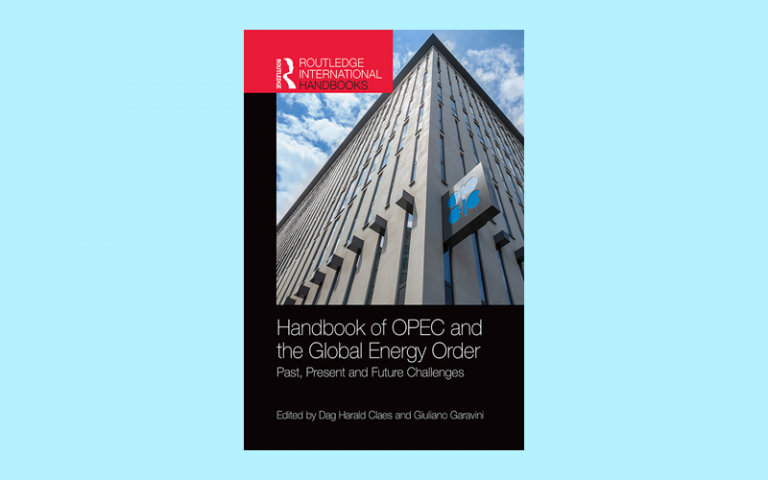EPEE MSc student co-authors Routledge Handbook on the history, politics and economics of OPEC
17 February 2020
Postgraduate student Greg Muttitt contributed to the Handbook of OPEC (Organization of the Petroleum Exporting Countries) and the Global Energy Order.

The handbook, edited by Dag Harald Claes and Giuliano Garavini and published by Routledge International, discusses and analyses the history and development of OPEC, its global importance, and the role it has played, and still plays, in the global energy market.
With chapters written by some of the world's leading scholars on the history, politics and economics of oil, the book reveals the complex history of OPEC beyond its usual portrayal.
Greg Muttitt, who studies Economics and Policy of Energy and the Environment (EPEE) MSc at UCL Energy Institute / UCL Institute for Sustainable Resources, wrote the final chapter: What Role for OPEC in the Last Generation of Oil?
The chapter explores the history and possible futures of OPEC's engagement with climate change - and suggests that OPEC could and should become a champion of decarbonisation. Faced with a rapid global energy transition, oil exporters may be better off getting ahead and transforming their economies, rather than putting the issue off.
Before starting the EPEE MSc, Greg was the research director at NGO Oil Change International for five years, working on climate change and energy transition, where he attended the 2017 conference on OPEC at NYU Abu Dhabi from which from which the Handbook was born.
The EPEE MSc is unique in the UK, and focuses on core areas that have risen rapidly up the public agenda - environment, climate and energy economics, modelling and policy.
The advanced degree programme gives students the skills to become sustainability leaders and entrepreneurs in business, policy-making and research.
Students gain an understanding of environmental and resource economics; modelling, methods and scenarios; environmental measurement, assessment and law; global economics and the political economy of energy and climate change.
- Find out more about the EPEE MSc on our programme page.
- Read Greg’s blog post on his chapter: What Role for OPEC in the Last Generation of Oil?
 Close
Close


